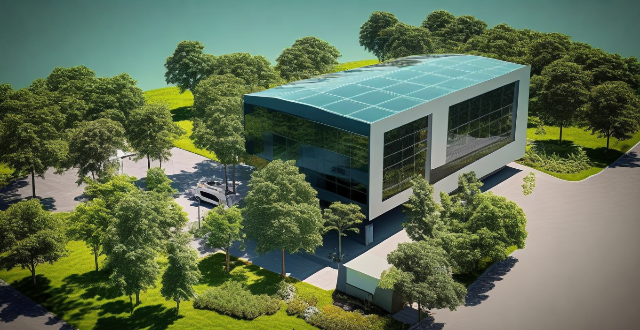Energy transition, the shift to cleaner energy sources, is crucial for mitigating climate change. Energy efficiency plays a key role in this transition by reducing demand and consumption, leading to multiple benefits including reduced emissions, cost savings, and increased energy security. Strategies for integrating energy efficiency include optimizing building design, transportation, industrial processes, promoting renewable energy use, consumer education, implementing supportive policies, and investing in research and development. By prioritizing energy efficiency alongside renewable energy adoption, we can expedite the move towards a sustainable future.

Energy Efficiency in the Broader Strategy of Energy Transition
What is Energy Transition?
Energy transition refers to the process of shifting from traditional, carbon-intensive energy sources such as coal and oil to cleaner, renewable energy sources like wind, solar, and hydroelectric power. This transition aims to reduce greenhouse gas emissions, mitigate climate change, and promote sustainable development.
The Role of Energy Efficiency
Energy efficiency plays a crucial role in the broader strategy of energy transition by reducing energy consumption and demand. It involves using less energy to perform the same tasks or achieving higher output with the same amount of energy. By improving energy efficiency, we can decrease our reliance on fossil fuels, lower our carbon footprint, and save money on energy bills.
Key Benefits of Energy Efficiency
- Reduced Energy Consumption: Improving energy efficiency means that less energy is needed to power homes, businesses, and industries. This leads to reduced demand for energy from non-renewable sources, which helps in conserving resources and reducing environmental impact.
- Lowered Carbon Emissions: As energy consumption decreases, so do greenhouse gas emissions. This is particularly important in the fight against climate change and helps countries meet their emission reduction targets.
- Cost Savings: By using energy more efficiently, individuals and businesses can save money on their energy bills. These savings can be reinvested into other areas, such as research and development of new technologies or social programs.
- Increased Energy Security: Greater energy efficiency reduces dependence on imported fuels, making countries more self-sufficient and less vulnerable to price fluctuations and supply disruptions.
- Promotion of Innovation: The pursuit of energy efficiency often drives technological advancements and innovations that can have wide-ranging benefits beyond just energy production and consumption.
Strategies for Integrating Energy Efficiency into Energy Transition
1. Building Design and Retrofitting: Incorporating energy-efficient designs and materials into new buildings and retrofitting existing structures to improve insulation, lighting, and heating/cooling systems.
2. Transportation Efficiency: Encouraging the use of public transportation, promoting electric vehicles, and implementing fuel efficiency standards for vehicles.
3. Industrial Processes: Optimizing industrial processes to minimize energy waste and adopting advanced manufacturing technologies that require less energy.
4. Renewable Energy Integration: Combining energy efficiency measures with the deployment of renewable energy sources to create a synergistic effect that further reduces reliance on fossil fuels.
5. Consumer Awareness and Education: Educating consumers about the importance of energy conservation and providing information on how to adopt energy-efficient practices at home and in daily life.
6. Policy and Regulation: Governments can implement policies such as energy taxes, subsidies for energy-efficient products, and mandatory energy efficiency standards to incentivize both individuals and businesses to prioritize energy efficiency.
7. Research and Development: Investing in research and development of new energy-efficient technologies and improving existing ones to continuously push the boundaries of what is possible in terms of energy efficiency.
Conclusion
Energy efficiency is not just an isolated goal but a fundamental component of the broader strategy of energy transition. By embracing energy efficiency alongside the shift towards renewable energy sources, we can accelerate the transition to a cleaner, more sustainable future for all.